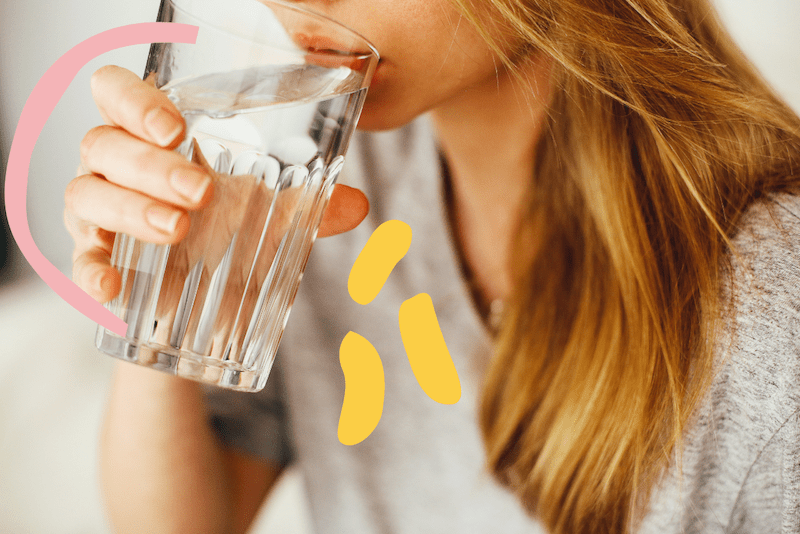With kcals suddenly cropping up on menus across the country, a new light has been cast on the usefulness and drawbacks of the concept of calories in weight management.
If you’re looking to manage your weight effectively, then you’ll probably already be familiar with the term ‘calorie deficit’, which simply means that you take in fewer calories than you burn.
Theoretically, if you use 2,200 calories today but only consume 2’000, then you have a deficit of 200 calories. When a calorie deficit exists, it means your body gets energy from stored fat. Since stored fat equals stored energy, your body can use it to keep moving instead of using energy from food. When you burn fat for energy, it means, in the most basic terms, that you’re losing weight.
Of course, calculating how many calories you expend during a day can be tough, but a generally accepted formula for doing so is known as the Harris-Benedict Formula. This formula involves multiplying your basal metabolic rate (your BMR) by your daily activity level. We’d recommend reading this summary by Medical News Today for more on that.
All this said, the simplicity and sustainability of the concept certainly has its limitations, with most experts cautioning against restricting calories drastically, as this can be harmful.
Instead, it’s generally suggested that anything over 500 calories a day fewer than the normal recommended intake (2’500 for men, 2’000 for women) is going to lead to negative consequences. Some of those consequences include potentially lowering your metabolic rate, causing fatigue and nutritional deficiencies, and weakening your fertility.
Fortunately, conceptually speaking at least, achieving a calorie deficit is simple; you either exercise more, eat a little less, or do both in tandem. Of course, there’s more to it than that, which we’ll explore today; here’s how to maintain a calorie deficit for successful weight management.
Enjoy Healthier Foods To Lower Your Calorie Intake
Adopting a healthy approach to your eating style is vitally important for lowering your total calorie intake. However, this doesn’t mean you’ll have to give up the tastes you enjoy and the satisfaction you get from meal preparation. Neither does it mean you should feel hungry all the time and low on energy.
Instead, many experts extol the virtues of a Mediterranean diet in reducing calories whilst keeping nourished and energised. So, that’s plenty of fresh fruit and vegetables, olive oil as the primary fat, lean proteins like chicken and fish, and lots of whole grains, nuts and seeds.
Making healthy food swaps is essential here, too. You can replace refined grains with whole grains, any processed foods with homemade, ‘bad’ for ‘good’ fats, and sugary drinks for water (more on that later).
Avoiding snacks and fast food quick fixes (high in sugar, fat and salt) is another key tenet of striving for a healthier but low calorie diet. If you’re particularly busy, then we love Bariatric Pal protein and fiber bars, which satisfy those cravings without overly impacting on your healthy eating goals.

Get Active
Exercise is essential when you’re trying to maintain weight. Regular physical activity in addition to lowering your calorie intake through healthy eating choices is arguably the most effective way to manage your weight.
With exercise, you can burn off the excess calories that you cannot cut through diet alone. What’s more, physical activity offers plenty of health benefits including strengthening your cardiovascular system, reducing blood pressure, and boosting your mood.
Some studies even posit that exercise is more important than diet in maintaining weight loss, and it helps prevent weight regain in previously overweight individuals.
Keep in mind that how many calories you burn will depend on the frequency, intensity, and duration of your physical activities. When considering the goals of calorie deficit, aerobic (often referred to as ‘cardio’) exercise is the way to go, though a mixture of that and strength training will put you in the best shape, physically.
Read: Benefits of cardio training
Water, Water, Water
Whilst certainly not the only reason to stay keenly hydrated, drinking water before meals may help you ingest fewer calories. Studies suggest that drinking more water can benefit weight loss as well as maintenance. Drinking water can also increase the number of calories you burn, known as resting energy expenditure. In adults, this has been shown to increase by 24-30% within 10 minutes of drinking water, and it lasts for at least 60 minutes.
So, drinking 0.5 litres (17 oz.) of water can increase the number of calories burned for at least an hour, which can lead to modest weight loss. Additionally, some people claim that drinking water before meals may reduce appetite, meaning it further decreases calorie intake (though remember, much more than 500 calories fewer a day isn’t a wise move).
If you choose to drink water instead of consuming other beverages that are usually high in calories and sugar, you have a better chance of losing weight. Water is naturally calorie-free, so it’s perfect for those who want to reduce the risk of long-term obesity and weight gain.

Don’t Count Calories
It might sound strange after a slew of numbers regarding appropriate calorie intake, but not counting your calories is a great way to maintain a calorie deficit without feeling constantly hungry. An overemphasis on the weighing scales can sometimes lead to a balanced diet being negated in favour of more extreme fad diets, which are never a good idea.
Instead, eating healthily and mindfully is – and always will be – the best way to manage your weight.
But what do we mean by eating mindfully?
Well, mindful eating is a powerful tool to gain control of your eating habits. It’s all about being fully aware of the food that you are eating in order to take control of your diet and be able to exercise both enjoyment and caution in every part of the process.
By incorporating elements of mindfulness and meditation into our dinnertime, not only will we avoid digestion issues, but we can also enjoy a whole new appreciation of the pleasures of both food and of life. Moreover, it can help one on a journey to weight loss and maintaining a healthy weight. We’ve written more about doing so over here; check it out!





